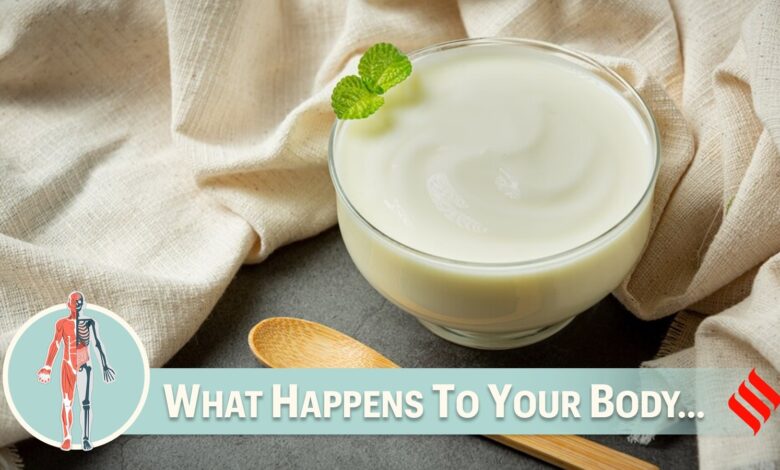This is what happens to the body when you eat curd after lunch every day | Food-wine News

Curd or dahi has been a staple in many Indian households for centuries, often enjoyed as a cooling accompaniment to meals. Rich in probiotics, calcium, and essential nutrients, it is widely believed to aid digestion and promote gut health.
Regular consumption of curd is linked to improved digestion, stronger bones, and even enhanced immunity. However, its effects can vary based on factors such as individual metabolism, gut health, and dietary patterns. While some people swear its benefits, others might experience unexpected reactions. So, what actually happens to the body when curd becomes a daily part of your post-lunch routine?
Does eating curd after lunch significantly alter gut microbiota?
Kanikka Malhotra, consultant dietician and certified diabetes educator, tells , “Regular consumption of curd after lunch can significantly alter gut microbiota composition due to its probiotic content, primarily Lactobacillus and Bifidobacterium strains. These live cultures enhance beneficial bacterial populations, improving microbial diversity and suppressing harmful bacteria like Enterobacteriaceae and Staphylococcus.”
Story continues below this ad
She explains that the lactic acid bacteria in curd strengthen gut barrier function, reduce inflammation, and promote short-chain fatty acid production, which supports colon health. “Daily intake sustains transient probiotic effects, such as increased Lactobacillus gasseri and Bifidobacterium lactis, aiding digestion and immune modulation,” she adds.
Curd’s probiotics also improve nutrient absorption, reduce bloating, and may lower the risk of inflammatory bowel conditions balancing gut flora. However, Malhotra notes that individual responses vary based on baseline microbiota and dietary habits. “Pairing curd with fiber-rich meals can amplify these benefits through synergic prebiotic-probiotic interactions,” she suggests.
Does curd have a cooling effect on the body?
Many believe curd has a cooling effect, but Malhotra clarifies that this idea is largely anecdotal. “Nutritionally, curd’s high water content and probiotics may contribute to a refreshing and hydrating effect, which could be perceived as cooling. However, there is no scientific evidence that curd directly lowers body temperature,” she says.
She explains that consuming curd after lunch supports digestion and probiotic benefits, aiding gut health and nutrient absorption. “While timing doesn’t specifically enhance a cooling effect, it does optimize digestive benefits. The perceived cooling sensation might be due to curd’s hydrating properties and its soothing effect on the digestive system,” she adds.
Can eating curd daily after lunch have negative effects?
While curd is packed with probiotics and essential nutrients, Malhotra warns that it may not suit everyone. “If you’re lactose intolerant, consuming curd daily might lead to uncomfortable symptoms like bloating and diarrhea,” she explains.Story continues below this ad
Overconsumption can also cause digestive discomfort and contribute to weight gain. “Additionally, excessive calcium intake from curd might slightly reduce the absorption of iron and zinc,” she notes. To enjoy curd’s benefits without drawbacks, she advises moderation. “Go ahead and add it to your lunch routine, but be mindful of your body’s response and adjust accordingly,” she concludes.
DISCLAIMER: This article is based on information from the public domain and/or the experts we spoke to. Always consult your health practitioner before starting any routine.





